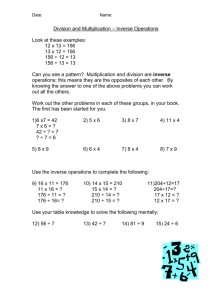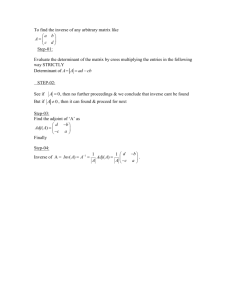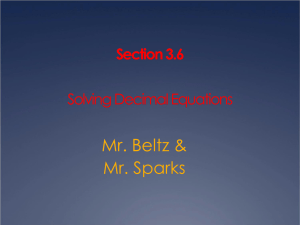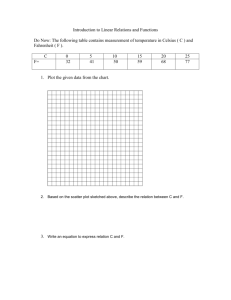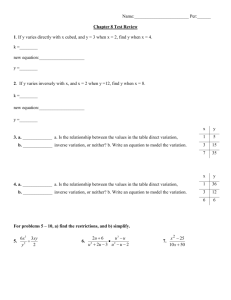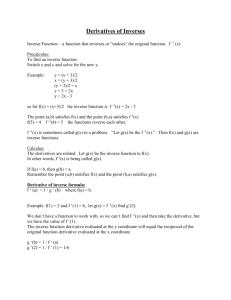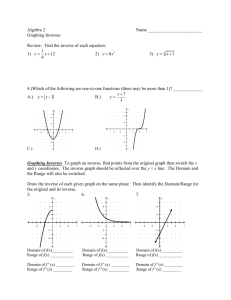Algebra II Unit 5
advertisement
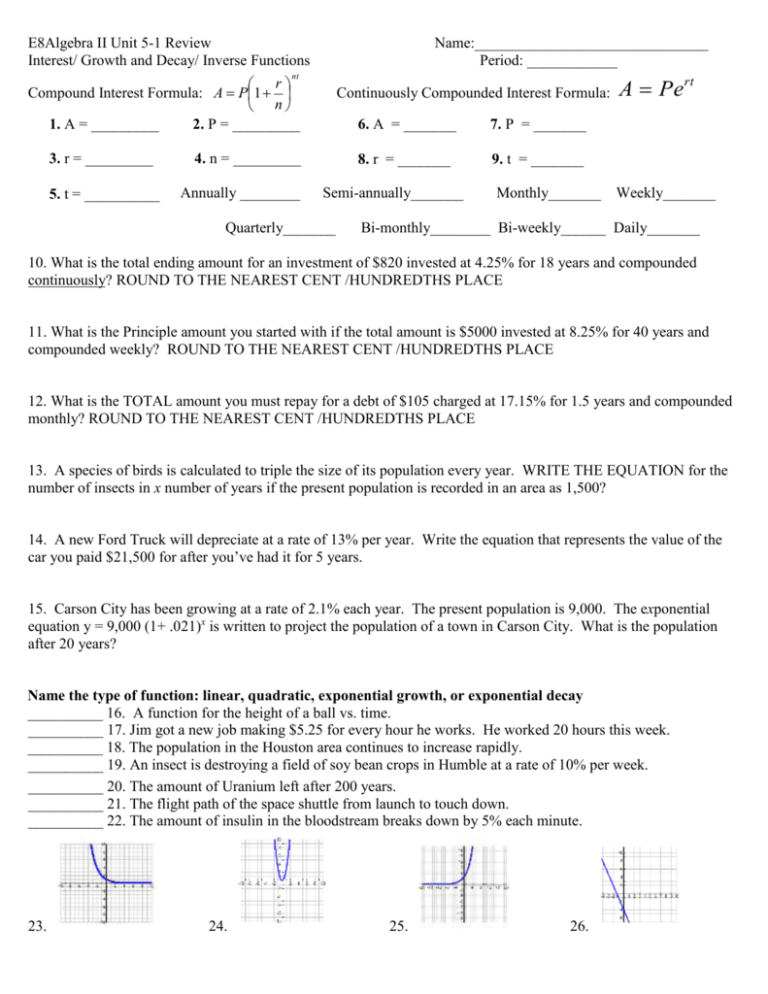
E8Algebra II Unit 5-1 Review Interest/ Growth and Decay/ Inverse Functions Name:_______________________________ Period: ____________ nt r Compound Interest Formula: A P1 n 1. A = _________ 2. P = _________ 3. r = _________ 5. t = __________ Continuously Compounded Interest Formula: 4. n = _________ Annually ________ 6. A = _______ 7. P = _______ 8. r = _______ 9. t = _______ Semi-annually_______ Quarterly_______ Monthly_______ A Pert Weekly_______ Bi-monthly________ Bi-weekly______ Daily_______ 10. What is the total ending amount for an investment of $820 invested at 4.25% for 18 years and compounded continuously? ROUND TO THE NEAREST CENT /HUNDREDTHS PLACE 11. What is the Principle amount you started with if the total amount is $5000 invested at 8.25% for 40 years and compounded weekly? ROUND TO THE NEAREST CENT /HUNDREDTHS PLACE 12. What is the TOTAL amount you must repay for a debt of $105 charged at 17.15% for 1.5 years and compounded monthly? ROUND TO THE NEAREST CENT /HUNDREDTHS PLACE 13. A species of birds is calculated to triple the size of its population every year. WRITE THE EQUATION for the number of insects in x number of years if the present population is recorded in an area as 1,500? 14. A new Ford Truck will depreciate at a rate of 13% per year. Write the equation that represents the value of the car you paid $21,500 for after you’ve had it for 5 years. 15. Carson City has been growing at a rate of 2.1% each year. The present population is 9,000. The exponential equation y = 9,000 (1+ .021)x is written to project the population of a town in Carson City. What is the population after 20 years? Name the type of function: linear, quadratic, exponential growth, or exponential decay __________ 16. A function for the height of a ball vs. time. __________ 17. Jim got a new job making $5.25 for every hour he works. He worked 20 hours this week. __________ 18. The population in the Houston area continues to increase rapidly. __________ 19. An insect is destroying a field of soy bean crops in Humble at a rate of 10% per week. __________ 20. The amount of Uranium left after 200 years. __________ 21. The flight path of the space shuttle from launch to touch down. __________ 22. The amount of insulin in the bloodstream breaks down by 5% each minute. 23. 24. 25. 26. 27. If you graph the following exponential equation F(x) = 2000(1.05)x what is the y-intercept (the value when x=0)? 28. Your family deposited $3000 when you were born in an account paying 6.5% interest compounded annually. a. Write the exponential equation to find your account balance for any time (t) years. ________________ b. Your mom said that you have to wait to take the money out of your account when the balance reaches at least $20,000. How old would you be? _______________ Chemistry: Radon-222 is a gas that escapes from rocks and soil. It can be dangerous for people when it accumulates in buildings. Radon-222 decays to polonium and eventually to lead. 29 What is the y-intercept?____________ 30 Write the domain shown in the graph as an inequality?__________________ 31 Write the range shown in the graph as an inequality?___________________ 32 What is the dependent variable? 33. What is the equation of the reflection line for any function and its inverse? 34. Fill in the table for the inverse function. Graph the line y = x. Graph the function and its inverse. Original x y -3 9 -1 1 0 0 2 4 4 16 Inverse x y 35. Fill in the table for the inverse function. Graph the line y = x. Graph the function and its inverse. Original x y 0 1 6 2 9 3 15 6 Inverse x y f-1(x) =_____________________36. Find the inverse of f(x) = x-3 f-1(x) =_____________________37. Find the inverse of f(x) = 4x f-1(x) =_____________________38. Find the inverse of f(x) = 3(x -6) f-1(x) =_____________________39. Find the inverse of f(x) = ½ x +5
